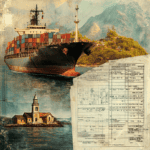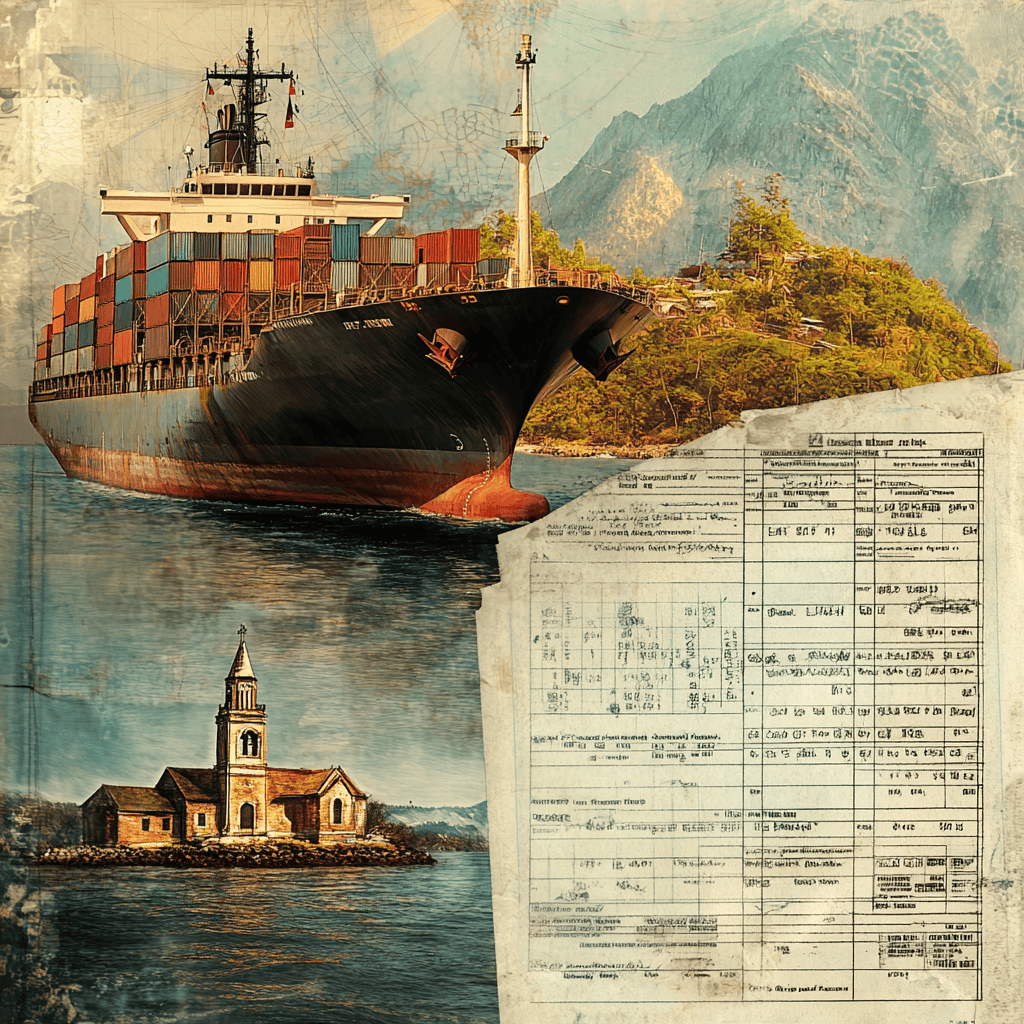In a world of constant economic upheaval, geopolitical tension, and unpredictable market shifts, it’s easy to feel powerless. For individuals and ministries alike, managing resources and stewarding finances well can feel like steering a ship in a storm. Tariffs rise, taxes change, and governments make decisions that ripple across continents. And yet, amidst all the chaos, there is one truth that stands firm: the mission of the Gospel must go forward.
This article explores three critical realities: first, that tariffs are largely beyond our control and can dramatically affect our bottom line; second, that taxes—though inevitable—offer strategic opportunities when approached with wisdom and planning; and finally, that despite economic or political fluctuations, the call to missions and the spread of the Gospel cannot and must not be stopped.
Part 1: Tariffs — Beyond Our Control, But Not Beyond God’s Sovereignty
A tariff is a government-imposed tax on imports or exports. It sounds simple, but in reality, it’s a powerful economic lever. Governments use tariffs to encourage domestic consumption, protect local industries, or apply political pressure on foreign countries. In the last decade, we’ve seen how tariff policies—especially between major world powers like the U.S. and China—can cause sudden price spikes, supply chain delays, and market instability.
For business owners, nonprofit leaders, and even families, tariffs are not just lines in a policy document—they have tangible impact. A container of Bibles being shipped for ministry can suddenly cost 15% more. Equipment for a water well project may get delayed or priced out. Everyday costs go up, and plans are forced to adjust.
Here’s the uncomfortable truth: we cannot control tariffs. We can’t predict when a government will increase them. We don’t get to vote on international trade policy. And in most cases, we can’t even negotiate our way around them. We’re simply left to respond.
But we must remember that God is not surprised by tariffs. His sovereignty encompasses every national economy and international agreement. As Proverbs 21:1 says, “The king’s heart is in the hand of the LORD, As the rivers of water: He turneth it whithersoever He will.”
Rather than lamenting what we cannot control, we must focus on what we can do: steward resources wisely, remain adaptable, and maintain our trust in God’s provision. The early church flourished under Roman occupation. Missionaries today face tariffs, travel restrictions, and regulatory red tape—and yet the Kingdom continues to expand.
So when tariffs hit your shipping line, when your cost projections are suddenly off, remember this: we serve a God who multiplies loaves and fish. He is not limited by economic policy.
Part 2: Taxes — Inevitable, Yet Navigable With Wisdom
Unlike tariffs, taxes hit much closer to home. They affect everyone—business owners, employees, churches, missionaries, and donors. And while they, too, are largely set by governments, we are not entirely powerless when it comes to taxes.
As Benjamin Franklin famously said, “In this world nothing can be said to be certain, except death and taxes.” But what he didn’t mention is that with wise planning, taxes don’t have to be a burden—they can be a tool.
Understanding Tax Advantages
Governments often provide incentives for charitable giving, investing, saving for retirement, and even supporting missions. These incentives are not loopholes or dodges—they’re intentionally designed benefits meant to encourage behavior that supports society.
Here are just a few examples of tax advantages that can benefit individuals and ministries:
- Charitable deductions: In many countries, donations to qualified nonprofits—including churches and mission organizations—are tax-deductible. Planning large gifts before year-end can significantly reduce taxable income.
- Donor-advised funds (DAFs): These allow givers to receive a tax deduction in the year they contribute, then distribute funds to ministries over time. It’s a powerful tool for strategic giving.
- Qualified charitable distributions (QCDs): For those over age 70½ in the U.S., IRA distributions can be sent directly to a ministry tax-free.
- Estate planning: With a proper estate plan, individuals can ensure their assets go to support Kingdom work rather than being eroded by estate taxes or probate fees.
- Non-cash gifts: Appreciated stock, real estate, or business interests can often be donated without triggering capital gains taxes.
In all these areas, wise counsel is crucial. Accountants, financial planners, and attorneys who understand both tax law and Kingdom values can help believers maximize their impact while minimizing their tax burden.
Stewardship as a Spiritual Discipline
Jesus spoke often about money—not because He was obsessed with wealth, but because money reveals the heart. Stewardship is more than budgeting—it’s a spiritual discipline. Tax planning, when done prayerfully and with integrity, is not about dodging obligations—it’s about multiplying Kingdom resources.
Think of the parable of the talents. The servant who invested wisely was praised. The one who hid his talent in fear was rebuked. When we plan ahead—yes, even in the realm of taxes—we act in faith, not fear. We prepare for harvest, not scarcity.
Part 3: The Mission Must Go — No Matter What
Now we come to the heart of the matter.
No matter how unstable the markets…
No matter how high the tariffs…
No matter how complex the tax codes…
The mission of God must go forward.
The Gospel is not a luxury reserved for economically stable times. It is not a side project for when taxes are low or shipping is cheap. It is the central mandate of the Church.
Jesus didn’t say, “Go into all the world—if the cost of living permits.”
He didn’t say, “Make disciples of all nations—unless there’s a tariff war.”
He said: “Go.”
The early church had no tax breaks. Paul paid his own way by making tents. Believers met in homes, risked their lives, and gave sacrificially to support the spread of the Gospel. And they did it because they believed something that we, too, must believe:
The eternal value of the Gospel far outweighs any temporal financial challenge.
In today’s context, this means that missions cannot wait for economic idealism. Churches must still send. Donors must still give. Missionaries must still go. Organizations must still ship, build, and preach—even when the costs are rising.
Yes, it may mean shifting strategies—finding local suppliers, using digital media, or planting churches in smaller, sustainable models. But it never means retreat.
A Word to Ministry Leaders and Supporters
If you lead a ministry, now is the time to get smart about your finances. Work with advisors who understand nonprofit tax rules. Plan for volatility. Create reserves. Use the tools available. But never let finances dictate your mission—let the mission drive your financial planning.
If you support missions, now is the time to give with greater intentionality. Learn about giving strategies that benefit both the Kingdom and your family. Set up recurring donations. Explore legacy giving. Don’t wait for a “better time” to give—now is the time.
And for all of us, it’s time to remember the urgency of the Gospel.
Final Thoughts: Faith Over Finances
Yes, tariffs are frustrating.
Yes, taxes can be complex.
Yes, planning is necessary.
But at the end of the day, our confidence is not in governments, accountants, or shipping lanes.
Our confidence is in a risen Savior who said, “All authority in heaven and on earth has been given to me. Therefore go and make disciples of all nations.”
He didn’t say this in an economic boom. He said it as He was ascending—handing over the mission of the Kingdom to fragile, uncertain, tax-paying, tariff-facing disciples.
They went.
So must we.
Please note: All charts and numbers are for illustration purposes only. Accuracy is neither warrantied nor implied. We are not attorneys or tax advisors. This information is educational only. Not to be considered as advice or recommendations. It is imperative that you consult with a tax advisor and/or attorney when considering any of these concepts. In addition, it is critical that the attorney, tax advisor, and financial advisor are knowledgeable and practiced in these areas.
If you would like help finding such an advisor, we will be glad to introduce you to an experienced planner with your best interest in mind. Please give us a call at 1-800-522-4324














